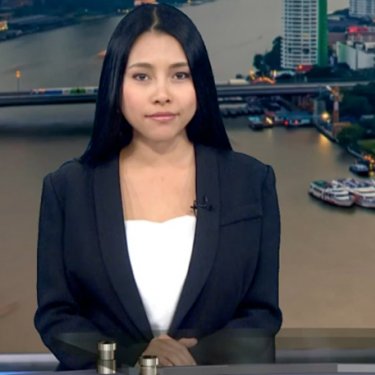Thai journalist gets two years in prison for a tweet

Reporters Without Borders (RSF) condemns the draconian two-year jail sentence that Thai journalist Suchanee Cloitre has just received for allegedly defaming an agribusiness company in the central province of Lop Buri in a tweet more than three years ago, and calls on Thailand’s justice system to overturn her conviction on appeal.
Update
Slightly less than a year after her conviction, Suchanee Cloitre was finally acquitted on appeal on Tuesday 27 October, 2020. In its ruling, the appeal court said: “As a member of the press and a citizen, the defendant has the right to investigate, criticize and give opinion that is in the public interest.” RSF hails a victory for press freedom but regrets that this journalist was initially convicted.
In this David and Goliath case, the Lop Buri provincial court sided with Goliath, the poultry-rearing company Thammakaset, when it convicted Suchanee Cloitre of criminal defamation on 24 December as a result of the suit the company brought against her in August 2016, when she worked for Voice TV.
The suit was prompted by her tweet about a court decision ordering Thammakaset to compensate 14 migrant workers who had been forced to work up to 20 hours a day on the company’s chicken farms while being paid less than the minimum wage and no overtime. The company sued her on the grounds that she dared to describe the conditions as “slave labour” in her tweet.
Two years in jail is the maximum sentence under Thailand’s criminal defamation laws. To avoid imprisonment pending the outcome of her appeal, Suchanee has had to pay bail of 75,000 baths (2,250 euros), the equivalent of six times the average monthly salary in Thailand.
Relentless crackdown
“We call on Lop Buri’s judges to recover a semblance of credibility by overturning Suchanee Cloitre’s absurd conviction on appeal,” said Daniel Bastard, the head of RSF’s Asia-Pacific desk. “This grossly unfair sentence has the hallmarks of a justice system that despises journalistic freedom and sides with the powerful. It seems to have the sole of intimidating all of Thailand’s journalists.”
Ever since the latest coup in 2014, Thailand’s military have imposed a relentless system for suppressing press freedom. The especially harsh defamation laws are often used to silence journalists who try to do their job.
Last March’s parliamentary elections were marred by serious pluralism violations and Voice TV, the channel for which Suchanee used to work, was shut down for two weeks during the campaign, as RSF reported at the time.
Thailand is ranked 136th out of 180 countries in RSF’s 2019 World Press Freedom Index.



